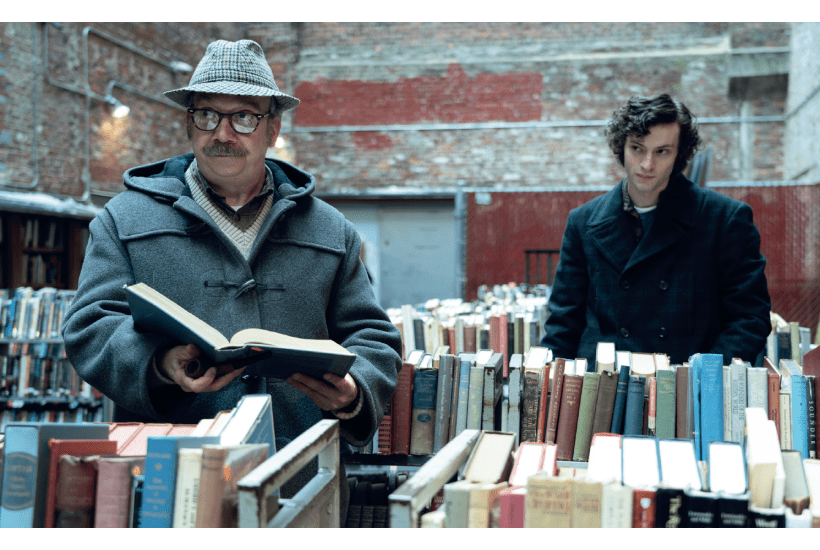The first thing to say about Alexander Payne’s latest, The Holdovers, is that it’s not so much an inspirational teacher film as an uninspirational teacher film. You should know that before attending the cinema otherwise you might sit throughout in the brace position, fearing it could go all Dead Poets Society at any moment. It doesn’t. No one plunders Tennyson for motivational slogans even once. Instead, it feels sincere, heartfelt, true. You may even come away wishing you’d had an uninspirational teacher when you were at school.
The year is 1970 and it’s filmed as if it had been made in 1970 with static on the soundtrack, desaturated colours and retro titles. The setting is Barton Academy, a New England boarding school for posh boys, where Paul Hunham (Paul Giamatti) has been (uninspiringly) teaching ancient history since forever. He is not charismatic. He is acerbic and bitter. He despises his students, who are rich, entitled ‘troglodytes’ and is exhausted by their mediocracy. They despise him in return.
It is affecting without ever being sentimental and the performances are tremendous
Physically, he hasn’t lucked out either, as he has a lazy eye and suffers from Trimethylaminuria so smells fishy. (No mention of coffee breath but if I had to bet?) Anyway, as punishment for refusing to bump up the grades of the son of a major donor he is forced to supervise the ‘holdovers’ – the children with nowhere else to go during the Christmas holidays. Eventually there are just three of them left in the vast, wood-panelled 18th-century school: Hunham, an angry, unpredictable, rebellious teenager called Angus (Dominic Sessa) and Mary, the school cook. Mary is played by Da’Vine Joy Randolph and if she doesn’t win every award going, I swear to God…
They are each bereft. Hunham seems to have never properly had a family. Angus’s mother has dumped him in favour of honeymooning with her new husband. And Mary, who’s loved and been loved, is dealing with the death of her son in Vietnam. This particular tension – poor boys go to war while rich boys, as Mary says, stay ‘safe and warm’ in their beds – is threaded throughout but the film never takes on privilege in a heavy-handed way. It’s not Saltburn. Nor is it one of those films that says family is where you find it – because if it had been, I’d have thrown up.
Slowly, slowly – you will need to be patient – this teases out all their unexpected backstories and the lesson is: look beyond stereotypes. In fact, do we all have a lazy eye in this regard? It is both melancholy and funny (just wait until you see what Hunham gives as Christmas gifts) as these characters develop the capacity to engage emotionally and take off in new directions. It is affecting without ever being treacly or sentimental and the performances are tremendous.
Lonely, broken roles are very much in Giamatti’s wheelhouse – see his other collaboration with Payne, Sideways – but it’s as if he’s born to play them, and it’s always astonishing how he can make unlikeable characters loveable. While prickly Randolph yearns and aches, Sassa perfectly captures a kid who doesn’t know what he’s feeling and might spin off dangerously at any moment. It is, I suppose, somewhat manipulative and a little part of me worries that Payne has got away with an inspirational uninspirational-teacher film and is having his cake and eating it, but what the hell. You won’t be bored for a single second.
Got something to add? Join the discussion and comment below.
Get 10 issues for just $10
Subscribe to The Spectator Australia today for the next 10 magazine issues, plus full online access, for just $10.
You might disagree with half of it, but you’ll enjoy reading all of it. Try your first month for free, then just $2 a week for the remainder of your first year.








Comments
Don't miss out
Join the conversation with other Spectator Australia readers. Subscribe to leave a comment.
SUBSCRIBEAlready a subscriber? Log in